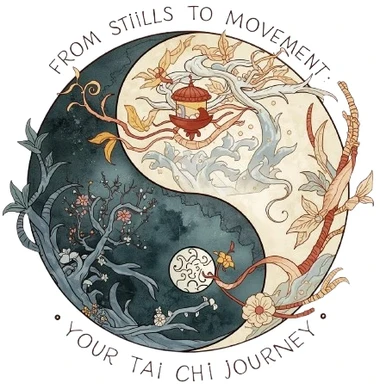Hello everyone,
Do you find yourself tossing and turning at night, unable to fall asleep—or waking up feeling tired even after hours in bed? You’re not alone. Sleep issues are increasingly common in our fast-paced world, but the good news is that Traditional Chinese Medicine (TCM) offers a holistic and time-tested approach to restoring healthy sleep—naturally.
In TCM, insomnia is known as “Bù Mèi” (不寐), which translates roughly to “sleeplessness.” According to TCM theory, sleep depends on the balance of Yin and Yang and the harmonious functioning of the internal organs—especially the Heart, Liver, Spleen, and Kidneys. When this balance is disrupted, it can lead to what TCM describes as “Yang failing to enter Yin,” resulting in difficulty falling or staying asleep.
TCM identifies several common patterns of sleep disturbance:
Heart and Spleen Deficiency: Often caused by overthinking or chronic stress, leading to dream-disturbed sleep, fatigue, and poor memory.
Liver Fire Disturbing the Heart: Associated with irritability, anger, and difficulty falling asleep.
Yin Deficiency with Internal Heat: May cause night sweats, restlessness, and a feeling of heat in the palms and soles.
Phlegm Heat Harassing the Interior: Can lead to heavy-headedness, chest tightness, and restless sleep.
So, how does TCM help?
1. Herbal Medicine
Based on your specific pattern, a licensed TCM practitioner may recommend formulas such as:
Guī Pí Tāng for Heart-Spleen deficiency
Lóng Dǎn Xiè Gān Tāng for Liver fire
Huáng Lián Ē Jiāo Tāng for Yin deficiency
Wēn Dǎn Tāng for phlegm heat
2. Acupressure
You can try massaging these points daily:
Shén Mén (HT7) – located on the wrist crease
Sān Yīn Jiāo (SP6) – inside the leg, above the ankle
Ān Mián (EX-HN22) – behind the ear
3. Lifestyle & Diet
TCM emphasizes the importance of routine:
Try to sleep during Zi hour (11 pm–1 am) and rest at noon (11 am–1 pm)
Avoid caffeine, heavy meals, or intense exercise before bed
Consider warm foot soaks with herbs like Yè Jiāo Téng to calm the mind
4. Emotional Balance
Stress and repressed emotions—especially anger or worry—can disrupt Liver Qi and Heart function. Gentle exercises like Qigong, Tai Chi, or meditation can help calm the spirit and support deeper sleep.
If you’ve been struggling with sleep for a long time, it may be helpful to consult a TCM practitioner for a personalized diagnosis through pulse and tongue assessment.
Have you tried any TCM methods for sleep? Share your experiences below!
Do you find yourself tossing and turning at night, unable to fall asleep—or waking up feeling tired even after hours in bed? You’re not alone. Sleep issues are increasingly common in our fast-paced world, but the good news is that Traditional Chinese Medicine (TCM) offers a holistic and time-tested approach to restoring healthy sleep—naturally.
In TCM, insomnia is known as “Bù Mèi” (不寐), which translates roughly to “sleeplessness.” According to TCM theory, sleep depends on the balance of Yin and Yang and the harmonious functioning of the internal organs—especially the Heart, Liver, Spleen, and Kidneys. When this balance is disrupted, it can lead to what TCM describes as “Yang failing to enter Yin,” resulting in difficulty falling or staying asleep.
TCM identifies several common patterns of sleep disturbance:
Heart and Spleen Deficiency: Often caused by overthinking or chronic stress, leading to dream-disturbed sleep, fatigue, and poor memory.
Liver Fire Disturbing the Heart: Associated with irritability, anger, and difficulty falling asleep.
Yin Deficiency with Internal Heat: May cause night sweats, restlessness, and a feeling of heat in the palms and soles.
Phlegm Heat Harassing the Interior: Can lead to heavy-headedness, chest tightness, and restless sleep.
So, how does TCM help?
1. Herbal Medicine
Based on your specific pattern, a licensed TCM practitioner may recommend formulas such as:
Guī Pí Tāng for Heart-Spleen deficiency
Lóng Dǎn Xiè Gān Tāng for Liver fire
Huáng Lián Ē Jiāo Tāng for Yin deficiency
Wēn Dǎn Tāng for phlegm heat
2. Acupressure
You can try massaging these points daily:
Shén Mén (HT7) – located on the wrist crease
Sān Yīn Jiāo (SP6) – inside the leg, above the ankle
Ān Mián (EX-HN22) – behind the ear
3. Lifestyle & Diet
TCM emphasizes the importance of routine:
Try to sleep during Zi hour (11 pm–1 am) and rest at noon (11 am–1 pm)
Avoid caffeine, heavy meals, or intense exercise before bed
Consider warm foot soaks with herbs like Yè Jiāo Téng to calm the mind
4. Emotional Balance
Stress and repressed emotions—especially anger or worry—can disrupt Liver Qi and Heart function. Gentle exercises like Qigong, Tai Chi, or meditation can help calm the spirit and support deeper sleep.
If you’ve been struggling with sleep for a long time, it may be helpful to consult a TCM practitioner for a personalized diagnosis through pulse and tongue assessment.
Have you tried any TCM methods for sleep? Share your experiences below!
1
